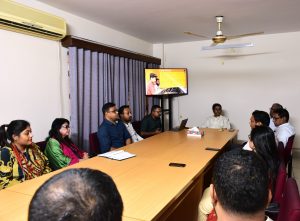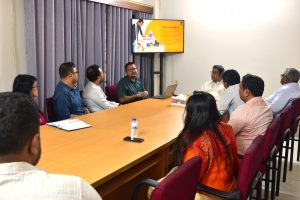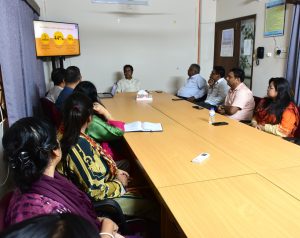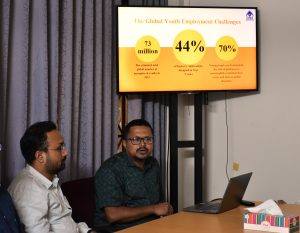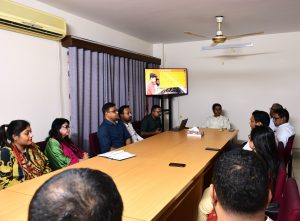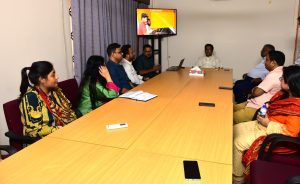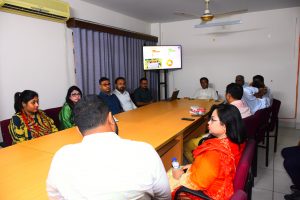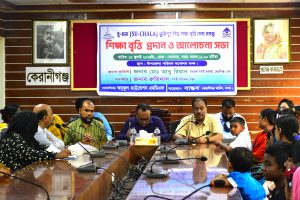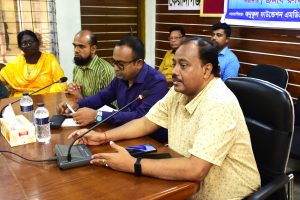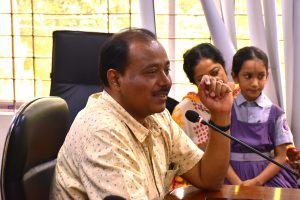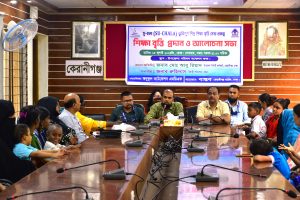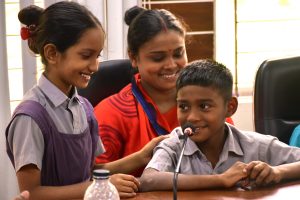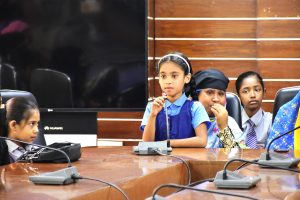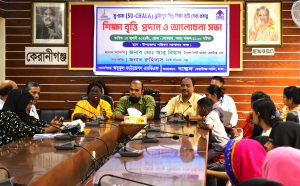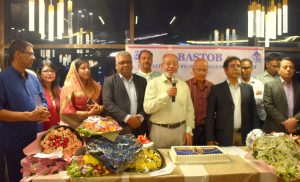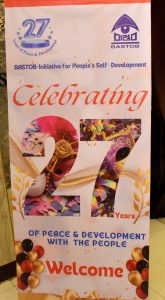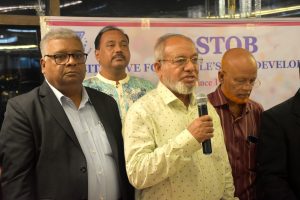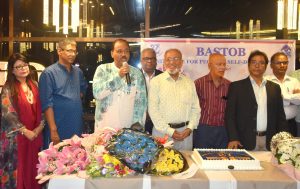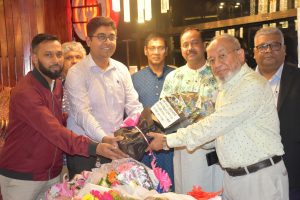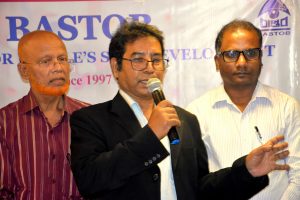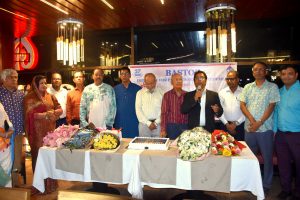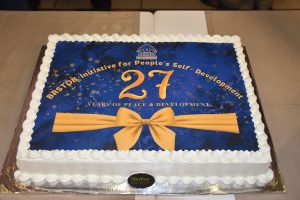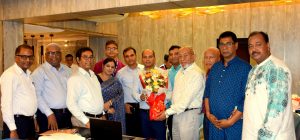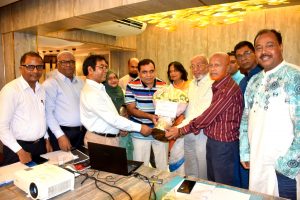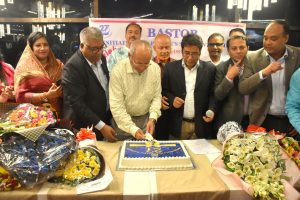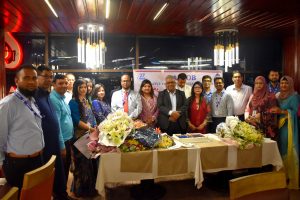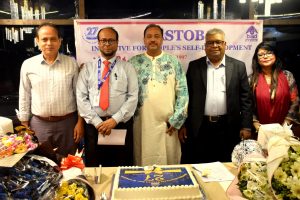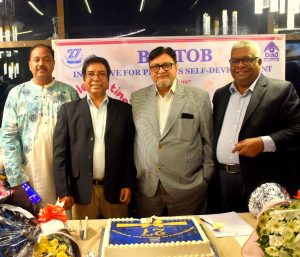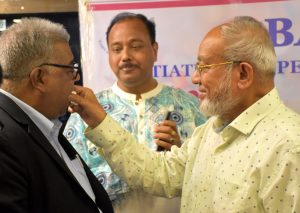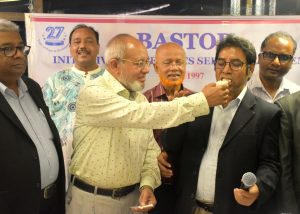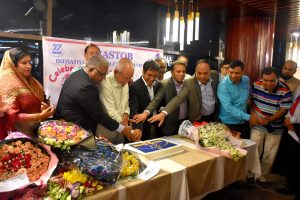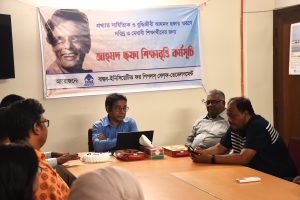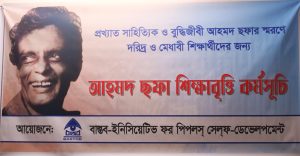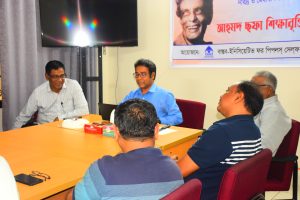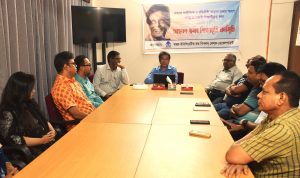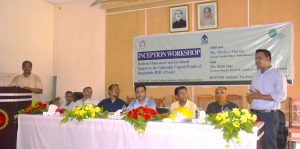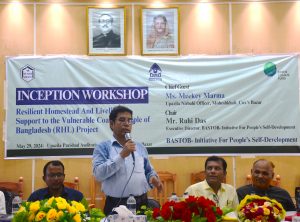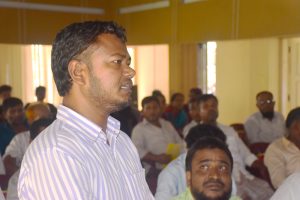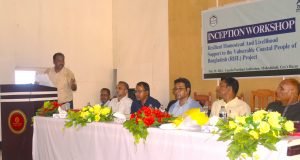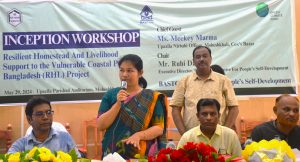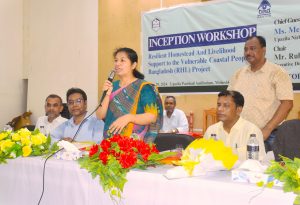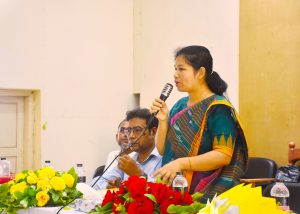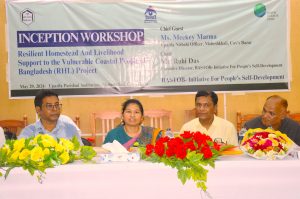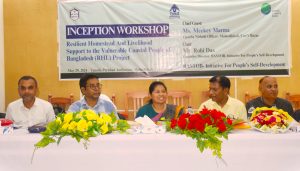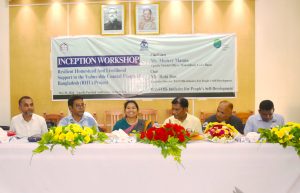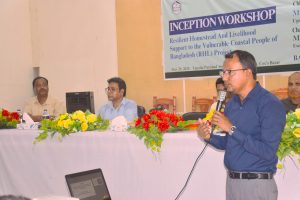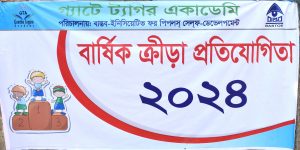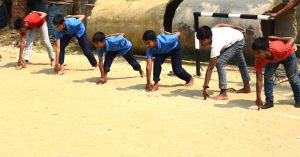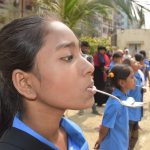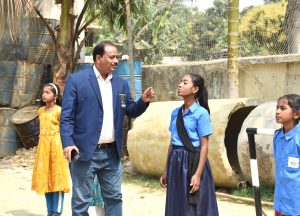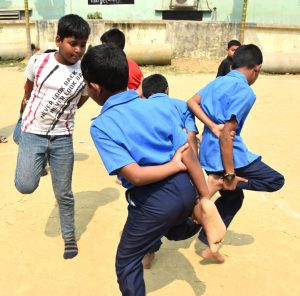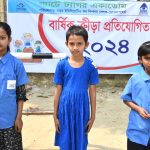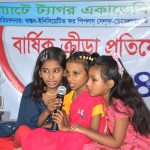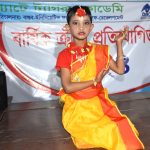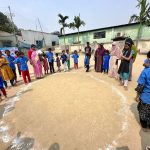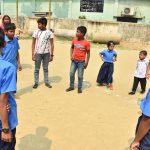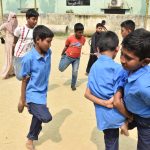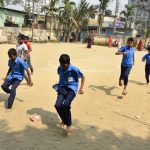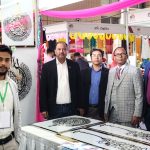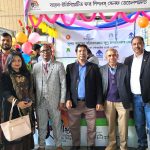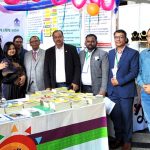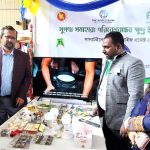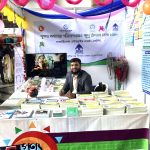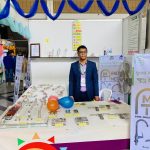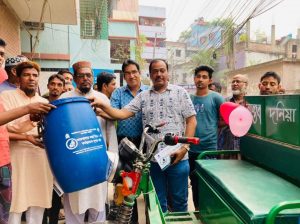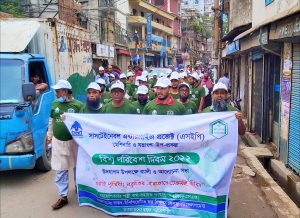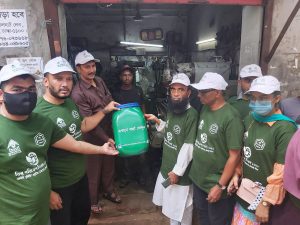বাস্তব- ইনিশিয়েটিভ ফর পিপলস সেলফ ডেভেলপমেন্ট গত ২ আগস্ট, ২০২৪ খৃিঃ তারিখ বিভিন্ন পদে কর্মী নিয়োগের জন্য “সাপ্তাহিক চাকরির খবর” পত্রিকায় বিজ্ঞপ্তি প্রকাশ করে। উক্ত বিজ্ঞপ্তির প্রথম ধাপে আগামী ১০ আগস্ট, ২০২৪ তারিখ রোজ শনিবার প্রধান কার্যালয়ে সাক্ষাৎকার অনিবার্য কারন বশত স্থগিত করে আগামী ৭ সেপ্টেম্বর, ২০২৪ তারিখ রোজ শনিবার পুননির্ধারন করা হলো। অন্যান্য সাক্ষাতকারের তারিখ অপরিবর্তীত থাকবে।
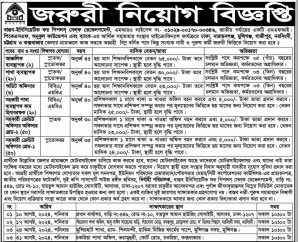 [/vc_column_text][/vc_column][/vc_row]
[/vc_column_text][/vc_column][/vc_row]
We’re thrilled to announce that BASTOB- Initiative for People’s Self-Development, in collaboration with the Anukul Foundation, has provided stipends to 22 children under the Save Urban Children from Hazardous Jobs and Assistance for Linking with the Academy (SU-CHALA) project!
This initiative aims to break the cycle of poverty and exploitation by giving vulnerable children a chance at education. The stipends will help alleviate financial burdens on their families and encourage them to pursue their studies.
We are honored to have had Mr. Md Abu Riad, Upazilla Nirbahi Officer (UNO) of Keraniganj, Dhaka, as the Chief Guest at the stipend distribution ceremony. His presence signifies the importance of collaborative efforts in ensuring a brighter future for our children.
At BASTOB, we believe that education is the key to unlocking a child’s potential. By supporting these 22 children, we’re investing in a more hopeful future for them and their communities.
We are thrilled to share that BASTOB celebrated its 27th founding anniversary on July 4, 2024! The event was a remarkable success and was observed with grace and dignity.
Our heartfelt thanks to all our invited guests, governing body members, founding members, and esteemed representatives from our partners who joined us in this joyous celebration. Your presence and congratulations, accompanied by beautiful flowers, added an extra layer of warmth and joy to the occasion.
As we reflect on our journey, we are filled with gratitude for the unwavering support and dedication from our community. Many more years of expansion and improvement, propelled by the values of individual and collective growth, are ahead of us!
To honor the legacy of renowned writer and intellectual Ahmad Sofa, BASTOB – Initiative for People’s Self Development has proudly launched the Ahmad Sofa Scholarship Program. This initiative aims to support underprivileged yet meritorious students in their pursuit of education, empowering them to build brighter futures.
As part of the program’s inaugural effort, scholarships have been awarded to 10 outstanding students from Fakir Memorial Foundation School and 5 from Goethe-Tagore Academy. This initiative reflects BASTOB’s unwavering commitment to fostering education and providing opportunities for those in need. By investing in young talent, BASTOB seeks to inspire a generation of learners to achieve their fullest potential, carrying forward the vision of Ahmad Sofa.
The scholarship program stands as a testament to the belief that education is the cornerstone of progress, and through such efforts, BASTOB continues to work towards creating a more equitable society.
A significant step towards empowering vulnerable coastal communities was taken on May 29, 2024 with the Resilient Homestead and Livelihood Support to the Vulnerable Coastal People of Bangladesh (RHL) Inception Workshop held at the Upazila Parishad Auditorium in Moheshkhali, Cox’s Bazar. This pioneering initiative, funded by the Palli Karma-Sahayak Foundation (PKSF) and implemented by BASTOB-Initiative for People’s Self-Development, aims to improve the lives and resilience of coastal communities in southwestern Bangladesh. The workshop was graced by the presence of esteemed guests, including the Chief Guest, Ms. Meekey Marma, Upazila Nirbahi Officer, Moheshkhali, Cox’s Bazar. Special guests included Mr. Abu Hayder, Chairman, Matarbari, Md Jashim Uddin, Principal, Moheshkhalli College, Atahar Iqbal, Dholghata Panel Chairman, and MD Alauddin, Marine Fisheries Officer, Moheshkhali, Cox’s Bazar.
Addressing the gathering, Ms. Meekey Marma lauded the RHL project initiative, stating, “The RHL project funded by Palli Karma Sahayak Foundation (PKSF) and implemented by BASTOB is clearly a good initiative. The integrated approach might help the Cyclone Remal-affected coastal people of Maheshkhali overcome hurdles.”MD Nasirul Alom, Upazila Agriculture Officer, Moheshkhali, Cox’s Bazar, emphasized the importance of collective action, remarking, “As Moheshkhali is a cyclone-affected area, the agricultural sector faces many difficulties. People should work together to overcome their challenges.”
The workshop focused on the key objectives of the project, including the construction of climate-change resilient houses in coastal areas, the establishment of crab hatcheries/nurseries and the cultivation of climate-change resilient crabs, goat rearing in the Mancha system, and the cultivation of salt-tolerant vegetables in homestead courtyards. The event facilitated discussions and collaboration among stakeholders, including government officials, development agencies, and representatives from the targeted communities. Participants shared valuable insights and explored strategies for successful project implementation.
Mr. Ruhi Das, Executive Director of BASTOB, chaired the program, while Mr. Ranjit Chandra Das, Assistant Executive Director of BASTOB, facilitated the proceedings. Notably, Chairmans from eight Union Parishads of Moheshkhali, Cox’ bazar also graced the event and committed to extending their support for the successful implementation of the project.
On 29th February 2024, The Goethe-Tagore Academy (GTA) witnessed a vibrant display of athleticism and cultural expression during its Annual Sports Day 2024, held under the supervision of the BASTOB Initiative for People’s Self Development. Thirty-three students actively participated in the day’s festivities, showcasing their talents and fostering a spirit of sportsmanship in a meticulously organized environment. In order to facilitate a competitive competition and encourage sportsmanship, students were strategically divided into three groups: KA, Kha, and GA.
The diverse program offered 21 events, including classic races (100-meter dash), culturally-inspired games (Vitor Bahir, math race), and playful activities (cock fighting [likely non-violent], pillow passing, marble race). Students displayed their enthusiasm throughout the day’s energetic competitions. The atmosphere crackled with enthusiastic cheers and applause as students displayed their athleticism and competitive spirit. Students captivated the audience with a vibrant program of singing, dancing, and poetry recitals, showcasing their talents with pleasant enthusiasm. A concluding prize-giving ceremony marked the end of the cultural program.
The Goethe-Tagore Academy’s 2024 Annual Sports Day proved to be a resounding success, highlighting the crucial role that sports and extracurricular activities play in fostering holistic student development. This well-rounded approach equips students with the necessary skills and confidence to thrive both within and beyond the classroom.
From February 8th to 10th, 2024, BASTOB proudly participated in the Suponno Somahar: Environment-Friendly Microenterprise Fair 2024, organized by PKSF (Palli Karma-Sahayak Foundation). This event served as a platform for microenterprises to showcase their environmentally conscious products and initiatives. BASTOB, committed to sustainable development and empowering micro-entrepreneurs, showcased its range of products across different stalls, captivating visitors with innovative machinery and electric products.We believe in the transformative power of microenterprises. Through our programs and support, we empower individuals to create sustainable livelihoods while fostering environmental stewardship. The Suponno Somahar provided an ideal opportunity for us to highlight the incredible work of our micro-entrepreneurs and the impact of their endeavors.
Throughout the event, BASTOB SEP team engaged with visitors, sharing insights into our mission, production processes, and the stories behind each product. We were thrilled to witness the enthusiasm and support from attendees who appreciated our focus on environmental responsibility and social impact. Many visitors expressed interest in collaborating with BASTOB and supporting our micro-entrepreneur’s journey toward sustainable prosperity.
BASTOB remains dedicated to expanding opportunities for micro-entrepreneurs, promoting eco-friendly practices, and contributing to a more sustainable future. We extend our heartfelt gratitude to the Palli Karma Sahayak Foundation (PKSF) for organizing this impactful platform and to all those who visited our stalls and embraced our vision for a better world. The Suponno Somahar 2024 was a resounding success for BASTOB, reaffirming our commitment to sustainable development and showcasing the potential of microenterprise to drive positive change. We thank everyone who visited our stalls, engaged with our team, and supported our micro-entrepreneurs’ journey toward a more prosperous and environmentally friendly future. Together, let’s continue building a world where entrepreneurship thrives, communities prosper, and the planet flourishes.
SUSTAINABLE ENTERPRISE PROJECT MACHINERY & ELECTRIC PROJECT:
PKSF in collaboration with the World Bank designed a microenterprise development project
titled “Sustainable Enterprise Project (SEP)”.
- The goal of this project is to increase the adoption of environmentally sustainable practices
by targeted microenterprises (MEs).
- The proposed project will support microenterprises in agribusiness and manufacturing
Clusters with a focus on areas that are environmentally stressed and/or vulnerable to climate
change and natural disasters.
Machinery & Equipment is an important sub-sector of the overall manufacturing sectors
in Bangladesh and it is fueling the growth of many other industries in the country. Around
34 Light Engineering (LE) clusters are spread over 18 districts across the country. Its
Market size stands at USD 12 billion, projected to grow to USD 25 billion by 2025.
Local production meets only 50% of local demand, creating tremendous scope for
import substitution
- Due to the lack of modern machinery, skilled manpower, and proper access to finance,
the MEs cannot maintain the proper quality of the product at a competitive market price.
Thus a significant amount of machinery and equipment is imported, which exhausts a
million dollars each year.
Overview of the Sub-Project
| Economic Activity (Sub-sector) | Spare parts manufacturing (Machineries and Equipment) |
| Title of the Sub-project | Sustainably developing industrial spare parts and equipment manufacturing workshops by adopting environmentally sustainable practice |
| District | 01 (Dhaka) |
| Upazila/ Thana | 02 (Keraniganj, Jatrabari) |
| Branches | 05 (Kholomora, Rajendrapur, Delpara, SaluliaDonia and Dholaikhal) |
| Number of MEs (covered by PO) | 500 |
| Project Duration | 2 years |
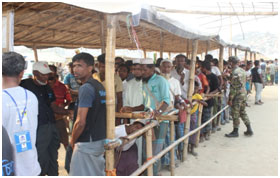 From August 25, 2017 the Rohingya people started to enter to Teknaf Sub-District of Cox’s Bazar District by the river Naf. Thousands of Rohingya victims crossed this river within just one day. From the 1st day to till date there over one million Rohingya Refugees are living the Ukhiya and Teknaf sub-districts of Cox’s Bazar district. These Rohingya people are victim torture of the Myanmar army where this Rohingya Community were tortured, raped, killed, burned and forced to migrated in Bangladesh.
From August 25, 2017 the Rohingya people started to enter to Teknaf Sub-District of Cox’s Bazar District by the river Naf. Thousands of Rohingya victims crossed this river within just one day. From the 1st day to till date there over one million Rohingya Refugees are living the Ukhiya and Teknaf sub-districts of Cox’s Bazar district. These Rohingya people are victim torture of the Myanmar army where this Rohingya Community were tortured, raped, killed, burned and forced to migrated in Bangladesh.
BASTOB immediately started its emergency relief operation from the surplus money of microfinance. Gradually some other donors came forward with BASTOB to assist the Rohingya people. Some of BASTOB’s efforts are as follows:
Distributing of Non Food Items among 1600 Rohingya families with 600 Children dress support:
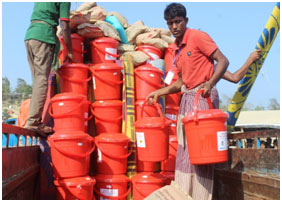 Unchiprang Camp, Teknaf, Cox’s Bazar where living around 45,000 Rohingya Communities was selected for the project local considering the 1st phase work and need of the communities. The camp is divided in 5 blocks like A, B, C, D and E. In the 1st phase BASTOB work only in the block A where distributed 400 families Non-Food Items (NFIs). As there was huge demand of the given materials from the community as well as from the local Army camp, BASTOB continued with this camp for 1600 more families who were living in the block B, C, D and E and each block received 400 family kits. There were also given 600 babies dresses to cover babies dress crises. There were provided 19 items among the 1600 families. List of NFIs Distributed are as follows:
Unchiprang Camp, Teknaf, Cox’s Bazar where living around 45,000 Rohingya Communities was selected for the project local considering the 1st phase work and need of the communities. The camp is divided in 5 blocks like A, B, C, D and E. In the 1st phase BASTOB work only in the block A where distributed 400 families Non-Food Items (NFIs). As there was huge demand of the given materials from the community as well as from the local Army camp, BASTOB continued with this camp for 1600 more families who were living in the block B, C, D and E and each block received 400 family kits. There were also given 600 babies dresses to cover babies dress crises. There were provided 19 items among the 1600 families. List of NFIs Distributed are as follows:
The above materials were highly accepted by the community and army camp. All of them found very happy while receiving the materials.
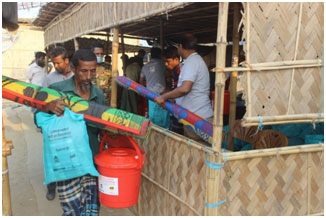
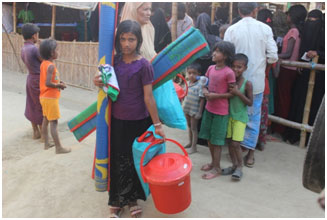
Construction of 60 Toilets:
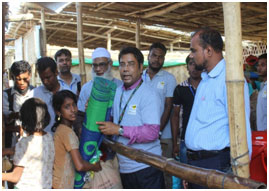 To construct these 60 latrines sets there was collected the list of the WASH sector and find out the gap of the latrines those are needed for the community. Through the list, all the point was physically verified and check the need of the locality. GPRS data was collected for each latrine before the installation of the latrine and after the completion this data was verified.
To construct these 60 latrines sets there was collected the list of the WASH sector and find out the gap of the latrines those are needed for the community. Through the list, all the point was physically verified and check the need of the locality. GPRS data was collected for each latrine before the installation of the latrine and after the completion this data was verified.
There were several designs which were produced by UNHCR and approved by the Department of the Public Health. One of the designs was taken by BASTOB to work on it which was double pit latrines consisting 10 x 2 = 20 rings of 48” diameter each.
The construction of the latrine was combined with Outside Tin Shed, inside RCC Pillar and wooden frame, finished brick floor with ceramic pan. All the latrines were equipped with water pot, soap and with cleaning liquid and brushes.
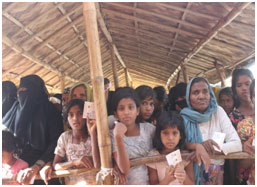 Total 60 Latrines were provided in different zone of Leda, Camp. Teknaf, Cox’s Bazar and the specifically 1. South Alikhali Zone D, Camp No. 25 – 16 Sets Latrines, 2. Leda Extension Camp Zone B Camp No. 24 total 20 sets latrine, 3. West Leda Camp Zone A – total latrines sets 24.
Total 60 Latrines were provided in different zone of Leda, Camp. Teknaf, Cox’s Bazar and the specifically 1. South Alikhali Zone D, Camp No. 25 – 16 Sets Latrines, 2. Leda Extension Camp Zone B Camp No. 24 total 20 sets latrine, 3. West Leda Camp Zone A – total latrines sets 24.
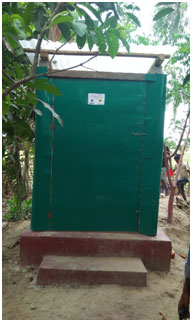
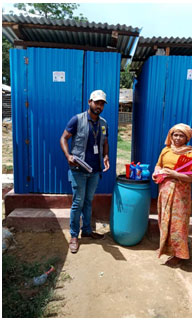
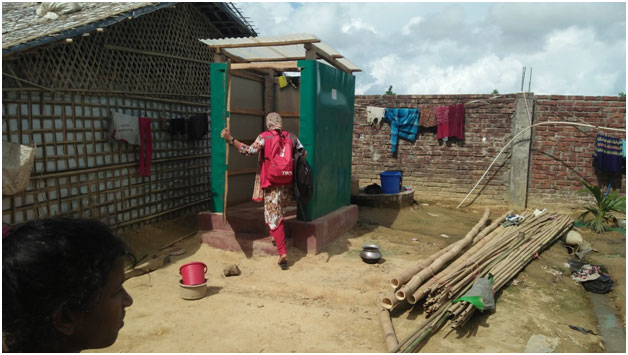
Construction of 60 Bathhouses:
Women of the Muslim Rohingya families are not used to use commonly bathrooms. The bathhouses are more important than their 3 times meals. Women are found very happy getting this facility at their door. Most of the NGOs have provided toilets but they did not provide bathhouses for these Rohingya Communities. BASTOB provided 60 bathhouses at the Leda Camp, Teknaf, Cox’s Bazar with other 60 toilets.
Total 60 bathhouses were provided in different zone of Leda, Camp. Teknaf, Cox’s Bazar and the specifically 1. South Alikhali Zone D, Camp No. 25 – 16 Sets Latrines, 2. Leda Extension Camp Zone B Camp No. 24 total 20 sets bathhouses, 3. West Leda Camp Zone A – total bathhouses 24.
Bathhouses are also well equipped with necessary water pot, water container, soap and soap box and cleaning brushes.
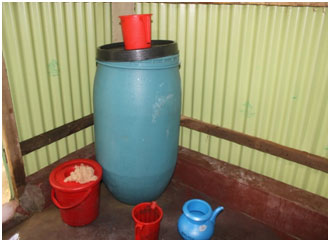
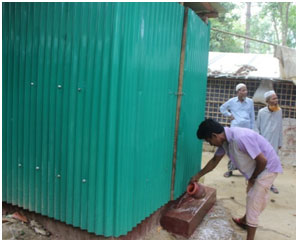
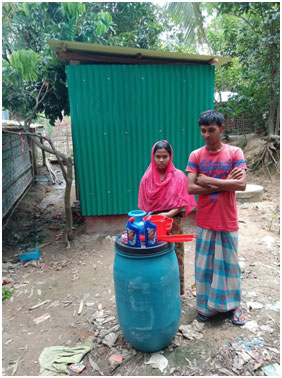
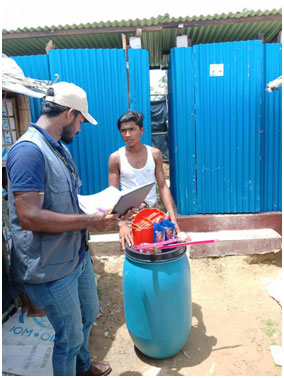
Formation of Hygiene Promotion Committee:
There are formed 60 Hygiene Promotion Committees who are responsible to maintain these latrines and bathhouses. They will ensure cleanliness of the toilets and bathhouses regular basis. They are also advised to ensure cleanliness materials once it is finished.
Provide Training to the Community use and maintain the Toilets and Bathhouse:
There are provided orientation session to the Rohingya communities who are direct user of the latrines and bathhouses. Children, women and men were the part of this orientation. They are orientated on personal and family cleanliness. BASTOB health Promoters have provided this orientation to the community visiting door to door. Object of this orientation was to make them clean themselves as well as provided WASH infrastructures.
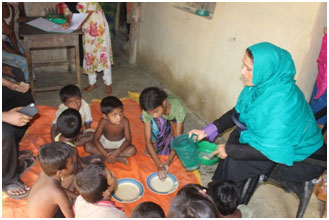
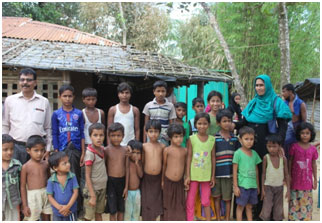
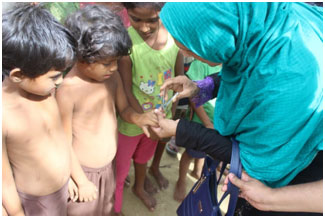
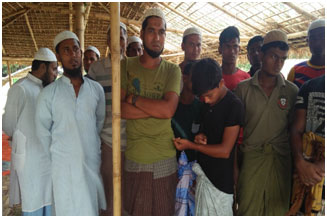
Installation of 5 Rainwater Harvesting Points:
Water crisis is one of the most important crises in the Leda Camp both for the Host and Rohingya Communities because of sea site. Considering this crisis BASTOB and HELP e. V. found an alternative source of water that is installation of rainwater harvesting points. BASTOB has provided 5 rainwater harvesting points using the roof of toilet and bathhouse as the pilot basis. Rohingya communities will be able to capture the water during the monsoon and overcome the water crisis. There is provided a 500-liter water tank with necessary pipe fittings to capture the water while raining.
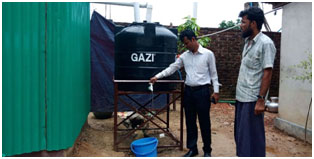
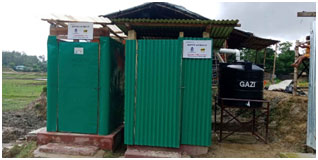
Rainwater Harvesting Points GPRS Data:
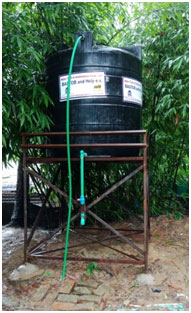
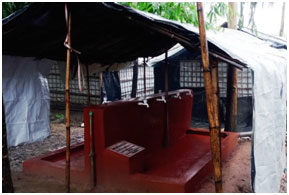
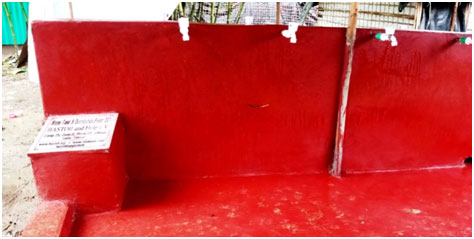
Water Tank and Water Distribution Point:
Site improvement work 450 Feet street repairing:
Moving on mud-street was very difficult for both the host and Rohingya communities who are living around the Leda Camp West. The Site for this work was requested by the IOM who are responsible for the site improvement work of all Rohingya Camps situated in Leda, Teknaf, Cox’s Bazar. BASTOB team visited the site and found the necessity of this road for the host and Rohingya Communities. Finally, site was selected and started the work. A total of 450 feet road was repaired with sands and bricks. This work was highly appreciated by all the communities living around west Leda Camp.
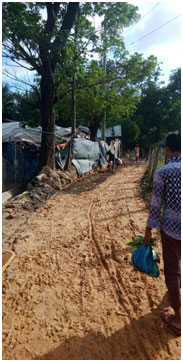
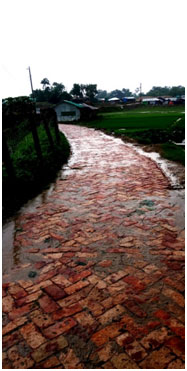
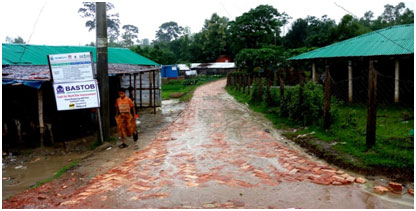
Site Improvement GPRS Data:

